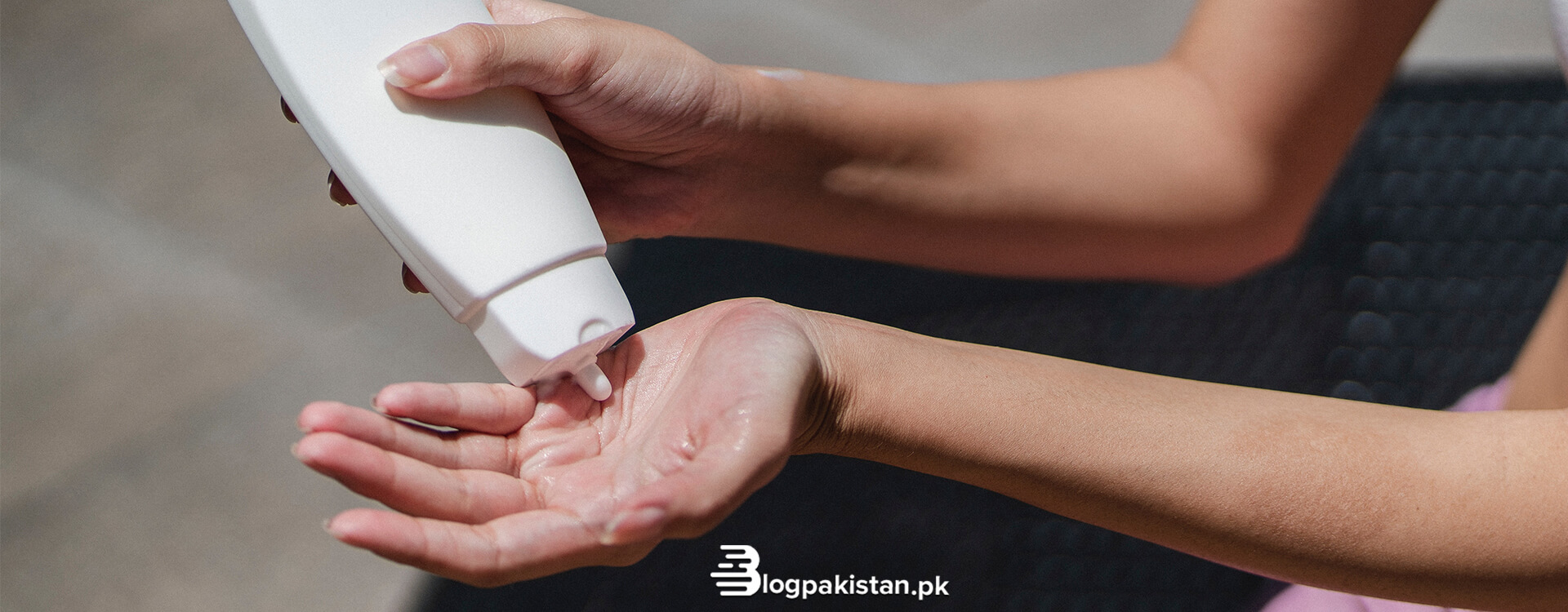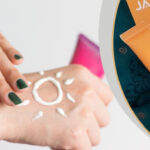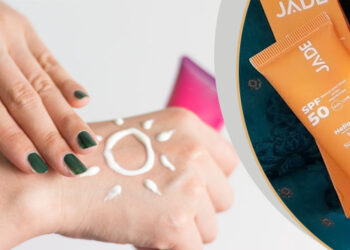Sunscreen is a very important part of skincare and is also crucial for your overall health. With skin cancer and aging becoming a global concern, it’s important that you buy an effective sunblock that keeps you protected.
If you are confused about buying the best one in the market here are 8 factors that can help you decide!
Factors to Look into When Buying a Sunblock
Below are 8 things to consider while choosing a sunscreen. These are recommended by dermatologists, government organizations, and beauty gurus worldwide.
- Consider SPF 30 or higher
- Choose Broad-Spectrum Protection
- Spray, Lotion, or Gel: Pick the Most Convenient One
- Chemical vs Physical
- Consider Your Skin Type
- Check Harmful Ingredients
- Explore Face and Body Sunscreens
- Water-Resistant vs Waterproof
Now let’s go through each factor one by one to understand why it matters when buying a sunscreen.
1. Consider SPF 30 or Higher
You must have heard of the term SPF while searching for sunblocks! SPF stands for Sun Protection Factor and indicates the level of sun protection you will receive.
According to the American Cancer Society, SPF 15 blocks or filters 93% of UVB rays, SPF 30 filters 97% of UVB rays, SPF 50 blocks 98% of UVB rays, and SPF 100 blocks 99%.
None block 100% and thus one should buy SPF 30 or above so one can get the maximum protection.
2. Choose Broad-Spectrum Protection
UV rays have two categories called UVA and UVB rays. Both are harmful and can cause premature aging and sunburns.
While these two types of rays are both dangerous, certain sunscreens only protect against UVB and not UVA. Therefore, those are not classified as broad-spectrum as they don’t offer protection against both types of UV rays and you should avoid them.
As per the recommendations of the American Cancer Society, use a broad-spectrum sunblock that offers dual protection (against UVA and UVB rays) for max effects!
3. Spray, Lotion, or Gel: Pick the Most Convenient One
Sunblock comes in gel, spray, lotion, stick, and creams. Based on your preference, convenience, and usage, you can pick either one of them.
Cream, lotions, and sticks are considered more effective than spray ones but it comes down to which one you will actually use!
If you pick a stick sunblock and don’t use it because it’s inconvenient, there is no point in buying one at all.
Therefore pick one that you will actually use, because regular application is key, to effective sun protection.
4. Chemical vs Physical
These are two categories of sunscreen each with its own pros and cons.
Physical sunscreens are also known as inorganic sunscreens and have ingredients like zinc oxide and titanium dioxide (approved by FDA).
Chemical sunscreens on the other hand have active ingredients other than zinc and titanium.
Both physical and chemical sunscreen work differently to protect you from the sun.
When it comes to choosing which sunblock is best for you, you can opt for both physical and chemical sunscreens as both are deemed safe by FDA, but the results and composition of each should be given a thought.
5. Consider Your Skin Type
Your skin type is a major factor to consider when choosing a sunscreen.
According to Joshua Zeichner, a dermatologist, and director of cosmetic and clinical research at Mount Sinai Hospital, one should look for non-comedogenic ingredients in sunscreen if one has acne-prone and oily skin.
He also recommends sunblocks with hydrating ingredients for dry skin.
If you have sensitive skin you should try mineral or physical sunscreen as recommended by Emily Smith, a dermatologist at the University of Missouri Health Care.
6. Check Harmful Ingredients
Children and people with sensitive skin should avoid using sunscreen with a lot of chemicals as that can cause redness, rashes, and breakouts.
For children, you can try a hypoallergenic sunscreen with zinc oxide. For sensitive skin, you should check for comedogenic agents as they clog pores and should be avoided.
Also, use fragrance-free sunscreen as ingredients used as fragrances can cause skin irritation.
Ingredients like octinoxate and oxybenzone should also be avoided as they have been associated with coral bleaching and had been banned in Hawaii (USA) in 2021.
7. Explore Face and Body Sunscreens
According to Fayne Frey, a dermatologist from New York, a body or a face sunblock are quite similar and the difference lies only in the bottle size.
Therefore you can buy one and use it for both your face and body.
If you have sensitive skin, you can consider buying a separate face sunblock that is lighter and not oily. Using a light sunblock for the face will less likely cause breakouts, clog pores, or irritate the skin.
8. Water-Resistant vs Waterproof
If you love to swim, visit the beach, or your activities cause you to sweat a lot, you would need a water-resistant sunblock.
It will retain itself on your skin without washing off and will offer sun protection but water-resistant isn’t the same as waterproof.
Sunblocks offer water resistance for certain hours. If you rub the product off with a towel it will wash away and so it’s not waterproof but resistant to a certain extent.
Thus when you are out buying one, check the time limit to understand the duration of water resistance it offers.
Get Your Perfect Sunblock Today!
In the above article, we went through 8 factors to understand which sunblock is best for you!
We found out that one should consider SPF, broad-spectrum protection, and texture of the sunscreen while choosing.
One should also consider his/her skin type, the chemicals, and the water-resistant properties of the product while going through different options.
Make sure you consider all of these so you can pick the one which serves your skin the most!
We recommend you explore more, to better understand how these products work and thus make better skincare decisions.















